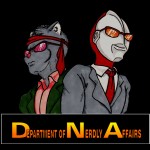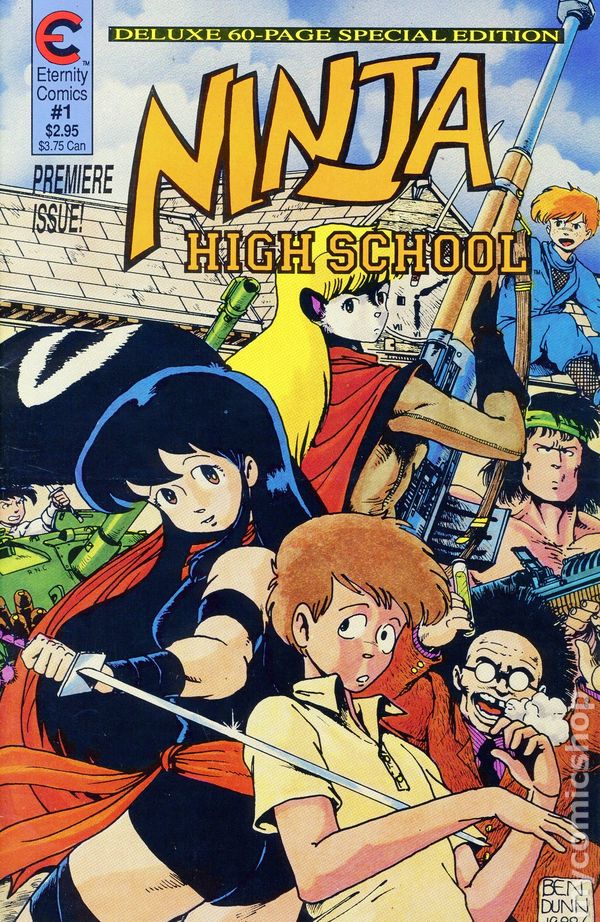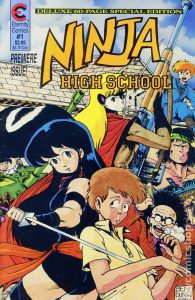
In this episode, Rob and Don are joined by comic book creator and founder of Antarctic Press, Ben Dunn. The three of them sit and chat about Ben’s long career in comics, how Antarctic Press came to be, and the ups and downs of running a comic book company. Along the way, Ben gives great advice about succeeding as an artist both in and outside the comics field and discusses the secrets to AP’s longevity and success. All this and a heaping helping of Ninja High School can be found in this, the 31st episode of The Department of Nerdly Affairs.
- Closing Music:
Ode to Joy performed by Oliver Eckelt
Things Discussed:
Ben’s Wikipedia Page
Ben’s Body of Work
Inkpot Award
Marvel Mangaverse
Antarctic Press
Ninja High School
Mangazine
Exremely Silly Comics
Mazinger Z
Tiger X
Urusei Yatsura
Project A-Ko
Warrior Nun Areala
Diamond Comics Distributors
Fred Perry
Wild Life
Shatter (computer generated comic)
Gold Digger
Strangers in Paradise
Box Office Poison
Trudyverse
Warrior Nun Pilot (animated)
Warrior Nun Pilot (live action)
Steam League
Science is Magic
Mighty Tiny
Upwork.com (formerly Odesk)
comixology (digital comics site)






Great interview. Much enjoy.
Always happy to be of service!
We were discussing how lucky we’ve been so far that we’ve had so many fantastic guests. Everybody’s added something interesting to the overall discussion. This one made me go back and look through my AP books. Once again it added a whole new facet to things. I can see a definite through-line to the AP roster now that I know Ben’s philosophy on publishing. And THAT info adds to my overall understanding of the comic scene of the day.
I did the same after talking with Edd, and it’s interesting to contrast the two. Ben is very businesslike, very focussed, very big picture. Edd seems more here and now, and focussed on the smaller picture; ie: the works themselves. (As his mentioning that he published things he found interesting over what would necessarily sell.) MU and AP were contemporaries, and as such there’s a tendency for me to see them as part of the “90’s comic scene” ….a sort of amorphous whole. Seeing the difference in underlying attitude (and then going back to see how it ran through the published works) gives me a better view of the ecology of the day.
“Ecology” being the word I chose ‘cos I’m now wondering about the interplay between the different publishers back in the day. There was a lot of cross pollination between AP and MU back then…. did companies like MU, with a more experimental bend provide a sort of proving ground for creators who’d then be picked up by the publishers with a more focussed methodology?
….kinda like how the sportsball leagues work….
Don C.